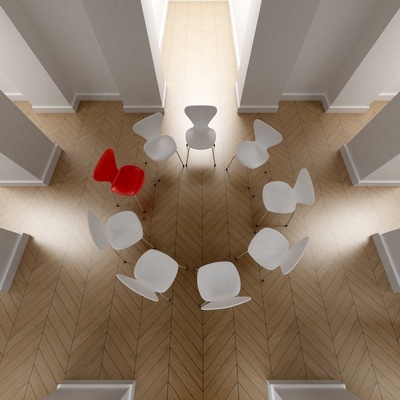
During a water cooler conversation about music recently with a much younger coworker, (a 21 yr old millennial) I mentioned an encounter with a pop music icon of my youth, (I’m a Gen X.) He then made it quite clear that he had never heard of said pop star, which besides making me feel really old and outdated, apparently absolutely astounded my other older coworker (a baby boomer) and had him proclaim “How can that be even be possible?…. in this, the internet age...for you to not have heard of him?….Wow!"
I’m sure my younger co-worker could name several musical acts, all icons of his current youth that my older co-worker will have never heard of to equal astonishment. Such is the impact of our generational cultural references. Often we don’t even know they ARE generational.
The baby boomers are due to retire over the next decade or so. Having been the most dominant and influential generation for some time, their mighty reign in the workplace is finally coming to end. Sure, they will go on to reign in the kingdom of redefining what it means to be a senior, but the next wave of corporate change will apparently be driven by the millennials, those born between 1981 – 2000. The second biggest generation to come along since the boomers.
There are several major ways millennials will change the workplace.
According to this interesting article in the Globe and Mail
-
There will be more women in leadership roles, as the millennials are the first generation to see more women with post secondary education than men.
- Forget work / life balance, invented by the boomers – it is all about blending, life and work wherever, and whenever you go. Have smart phone = will be in touch.
- Goodbye emails and meetings. Hello instant messaging, chat, texts etc.
- It will be all about ROWE – (results only work environment). i.e. It’s WHAT you do, not how and where you do it that counts.
- Regular immediate feedback will be important - i.e. evaluate employees work daily not yearly.
But wait – aren’t those millennials all lazy and entitled? While that may be an existing stereotype, it is not exactly true according to this definition by Richard Sweeny:
“Millennials are a huge generation of impatient, experiential learners, digital natives, multitaskers, and gamers who love the flat, networked world and expect nomadic connectivity, 24x7. More importantly they are demanding consumers who expect more selectivity, personalization and customization in their products and services.”
But wait once again, the workplace trend is toward no required retirement age, so it’s likely the boomers may want to work well past the current expected age of retirement of sixty five, some may well want to work into their seventies, maybe even their early eighties!
So in managing and designing the agencies of the future, we will need to anticipate the needs of all three generations for a least another decade and possibly longer. We will need to take into account the varying needs of the exiting boomer kings, the sandwiched gen x, and the dauphine millennials as well as all their different working styles, preferred technologies, preferred communication styles, and cultural impacts.
I for one will welcome the end of meetings.
Long live the King.

